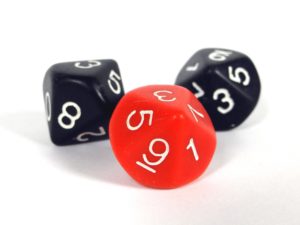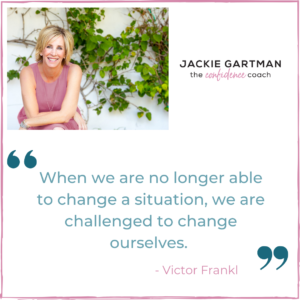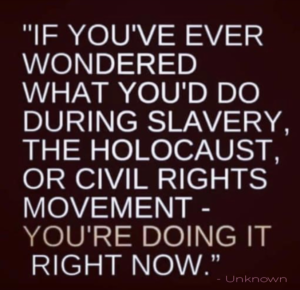
Since I wrote my first blog post on this subject, Proud Mom of an Addict, a staggering number of people have reached out with caring expressions of support as well as gratitude that my family “came out,” so to speak, with our story. Addiction is rampant, though many loved ones miss the warning signs. And a gambling addiction is one of the most difficult to spot of all.
You can’t smell a gambling addiction on someone’s breath. You can’t really see the dysfunction in their behavior. Most gambling addicts look healthy and fine, and many are able to keep up the appearance of being highly functional. In fact, when we were checking out rehab facilities with our son, he was also training for a promotion at work at the same time.
Which brings me to the questions I hear the most often from concerned parents: didn’t we, somehow, know that something was wrong? Was there anything we could have done to nip our son’s gambling addiction in the bud?
There’s no simple answer to this. Were there signs of a burgeoning problem early on? Yes, but many of them I can only recognize with the wisdom of retrospection. Could we have stepped in and done something? Maybe. Maybe not. The only thing I know for sure is that I had a sense that something was off, but I didn’t know what, or to what degree.
Let me back up.
Josh, now 24, started gambling at age 16. He was and is an athlete, the top tennis player in middle school and high school. Sports were the coin of his realm, the language he spoke best, and a huge part of his identity and self-esteem. I didn’t feel totally okay with this, but Josh dismissed my concerns. Besides, we were talking about small $5 and $10 bets on basketball and football games, using his own allowance.
When Josh turned 18, he could legally frequent California’s tribal casinos. One night, he came back home at two in the morning, having won $5000 at blackjack. “I don’t have to work this summer,” he announced excitedly. He was cocky, felt he had an edge, and wanted to be a pro.
We made him work that summer anyway.
In college, we assumed he was living like most students, on a shoestring. We’d get calls for money occasionally, but nothing out of the ordinary—$25 here, $100 there. He was living with several friends, and we’d given him money to cover his share of the rent. We thought it was strange when the mother of one of his friends emailed to ask if there’d been a mix-up, because Josh hadn’t paid his share that month.
But Josh had explanations, and we allowed ourselves to be convinced by them. He was bad at money management, he said. He was sorry. He didn’t know where the money went. We attributed his money issues to teenager brain—you know, impulsivity, disregard of consequences, the stuff neuroscientists tell us is perfectly normal until the brain matures, usually not before age 25 or so.
Josh graduated and got a job. We’re still thinking everything is fine. Until we get a phone call. “I’ve got a gambling problem,” our only son tells us. “I think I need help.”
Then it all came out: he hadn’t been able to make his rent, so he’d borrowed money, unbeknownst to us, from his grandparents. He’d maxed out his credit cards. We found out he had a bookie—a relationship he’d begun back in high school.
We knew this was a big deal, but in retrospect, we really didn’t understand the scope of it. Out of a combination of ignorance and denial, we saw it as a problem, not an addiction. We gave him a check from his own savings account to pay off his credit cards, on the condition that he attend Gamblers Anonymous meetings.
He did neither. Well, he went to one meeting and, after seeing a roomful of middle-aged men who’d lost their jobs, homes, and families, men to whom he couldn’t relate, he concluded he wasn’t a gambler and that he really didn’t have a problem. Certainly nothing like these men had.
But he was. Josh was caught in a web of deception that included himself: he’d lie to us, his therapist, and, eventually, himself. That’s the insidiousness of this disease: gambling is socially acceptable, and it’s easy for addicts to justify continuing to do it. Josh both knew he was lying and was scrambling trying to keep up with what he’d told whom, and at the same time convinced by his own deceit that he was fine.
Six months later, he hit what was, for him, rock bottom. He realized that all he was thinking about at work was when he could make his next bet. He was awake all night worrying about how he was going to pay off his bookie. He started taking both prescription medications and street drugs to sleep and then still more to wake up. Perhaps most humiliatingly, his credit card was declined at McDonald’s.
Many addicts, faced with this kind of financial crisis, turn to stealing. Thankfully, Josh turned to us instead. When he asked for help a second time, I finally realized that it wasn’t that he didn’t want to stop gambling. It was that he couldn’t. And that our leaving rehab and counseling up to him wasn’t going to cut it. Josh willingly entered rehab, worked hard at the program, and is now working and training for the L.A. Marathon.
If I have any regrets, it’s that I didn’t closely tune into my intuition, which waved a tiny red flag at me back when John was 16 and this all started. I had a gut feeling that my son was lying to me, but I didn’t want to believe it, and I had no evidence indicating otherwise. I believed his quick insistences that he was fine, and I chalked up any resistance to my tentative probing to him being young and mostly a private sort of person.
I also believe that there was probably nothing I could have done to stop the trajectory of what happened, especially once Josh was an adult living on his own. Sometimes, we can’t be there to catch our kids or loved ones when they fall. Perhaps we’re not even supposed to. Had I attempted to rescue my son early on, I might have only delayed the inevitable issues, and instead of being in recovery, my son would be still struggling, not yet having hit his rock bottom.
Sometimes the best you can do for your loved ones isn’t to catch them and save them from consequences, but to be there to help them back up after they fall.

Making Meaning in Hard Times
I had to forego my hike today. It’s not a big deal, and yet it is. Hiking has been one



